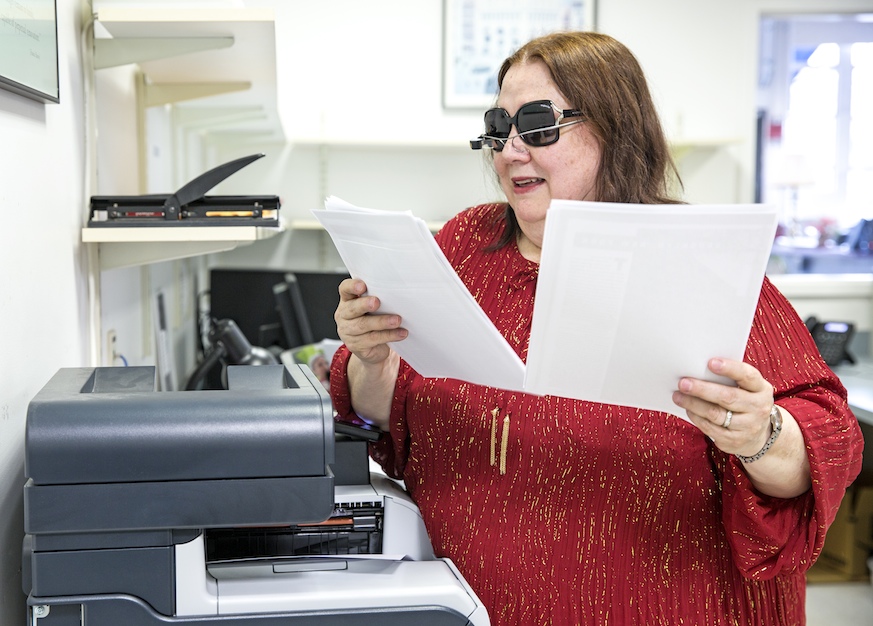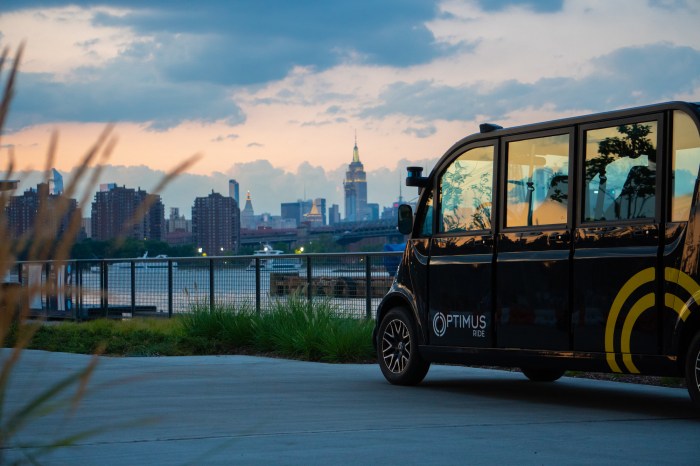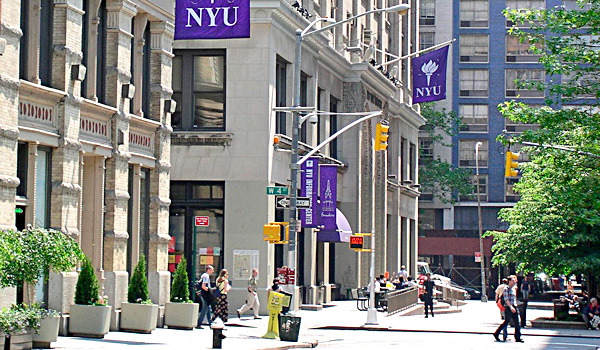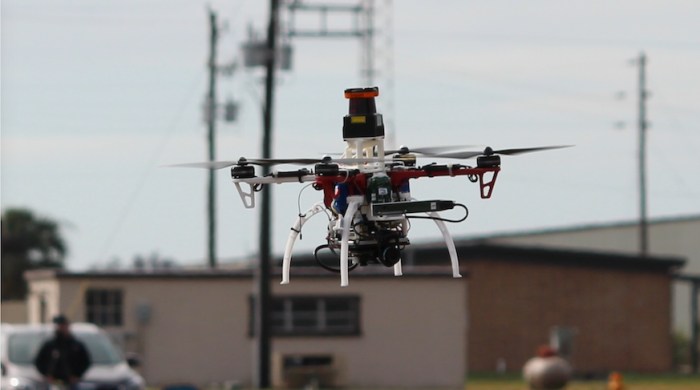One recent night, Kim Charlson and her husband wanted to take an inventory of their downstairs freezer. It’s something everybody has to do, Charlson said, but because they’re blind, the chore is a bit tricky.
Though the couple has labeled their frozen food with braille, Charlson can only read two or three items before “finger freeze” sets in, she said, and her fingertips become too numb to read the braille.
Luckily, Charlson has what is essentially a virtual assistant. Through Aira, a new technology that combines augmented reality and artificial intelligence, Charlson can call up an agent who acts as her eyes.
Aira uses wearable glasses and a smartphone app to aid blind or visually impaired people, looking through the cameras to see their points of view and provide verbal help.
The company has recently collaborated with the Perkins School for the Blind in Watertown, making the technology available for free to anyone on campus. Users can request navigational support, help with classroom tasks, read any mail that comes by paper, rather than digitally, or anything they can think to ask for, basically.
“Aira is like having a sighted person in your pocket, you can ask them a question at any time and they’ll have time for you,” Charlson said. “Your imagination is the boundary. … I’m finding that it’s only limited by the things you can think to ask the service to do.”
Charlson is part of a pilot test for Aira (and did get an inventory of her freezer, thanks to an Aira agent) and helped bring the system to Perkins’ campus. She works at the school as the executive director of the Perkins Library, an accessible public library for anyone in Massachusetts who can’t read print.
Though Charlson said the freezer example was a bit silly, it was a part of her life that Aira made easier. That ability to have visually-impaired people test out technology, and find these uses others may not think of, is really important, said Dave Power, president and CEO at Perkins.
A lot of technical advancements, like AI and machine learning, can uniquely benefit the visually impaired community, but only if the people creating the tech think about those applications.
Think about GPS, Power suggested: we’ve come so far with outdoor navigation, but haven’t solved the problem of indoor navigation, which could help visually impaired people move about their houses or offices.
“The applications of this amazing technology don’t naturally make it all the way to solve the problems of people who are blind and visually impaired, unless there’s a way to connect those dots,” Power said. “We think Perkins can play that role of connecting innovators with the blind community.”
Aira could fill in as indoor navigation on campus for now, and hopefully, Power added, inspire other tech pioneers to work with Perkins, as well.
























